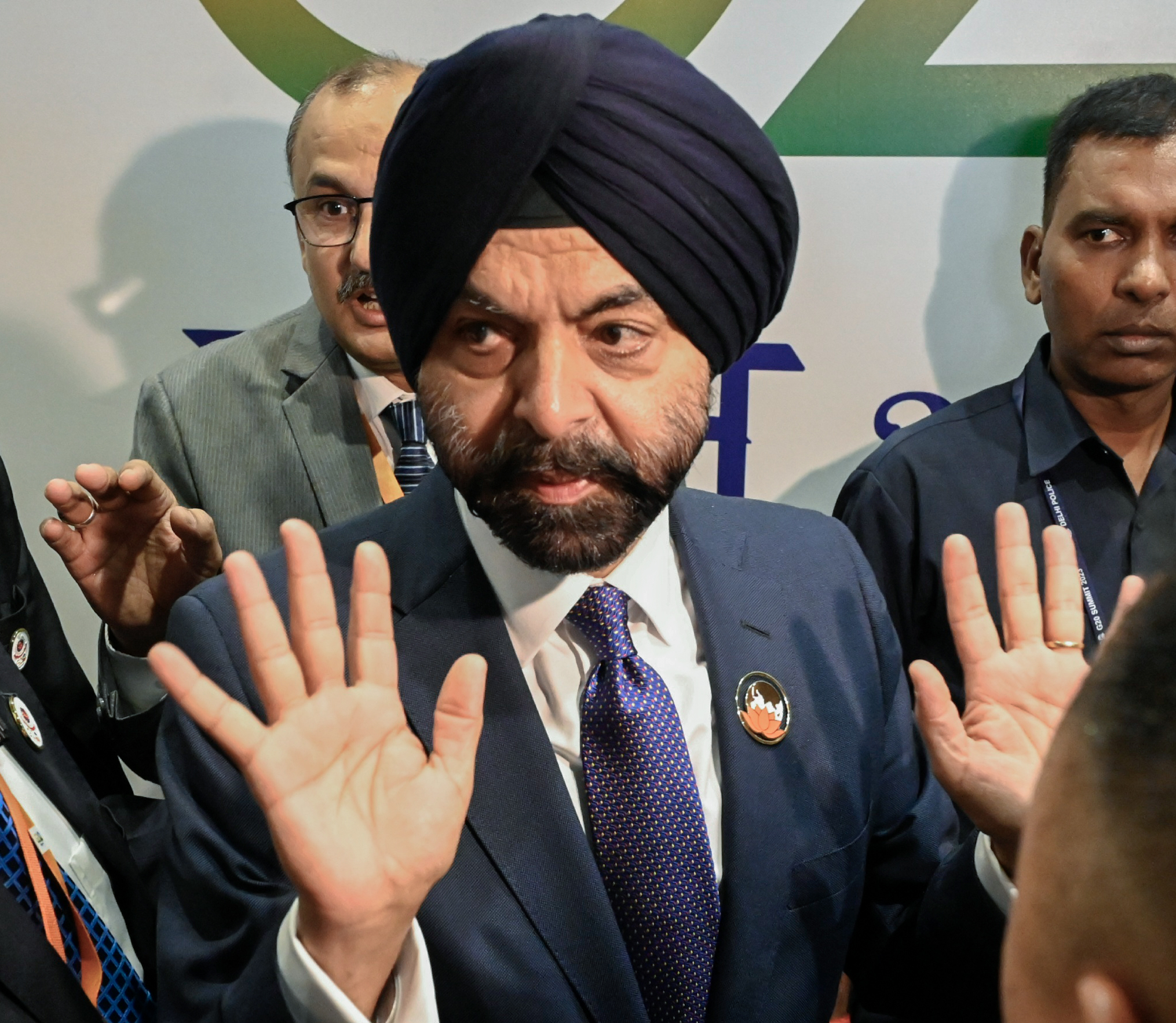World Bank President Ajay Banga urged developing countries on Wednesday to liberalize trade, saying many maintained higher tariffs than advanced economies and lowering them could offset the risk of reciprocal import taxes.
Banga told reporters that global uncertainty – triggered in recent months by U.S. tariffs and retaliatory measures announced by China and other countries – was contributing to a more cautious business and economic environment.
He said the impact would vary country by country, but that global growth is expected to slow from the level forecast several months ago. Banga gave no specific forecast.
In January, the global development bank forecast flat global economic growth of 2.7% in 2025 and 2026, the same as in 2024, and warned that developing economies now faced their weakest long-term growth outlook in 25 years.
At the time, it warned that U.S. across-the-board tariffs of 10% could reduce already lackluster global growth in 2025 by 0.3 percentage points if America’s trading partners retaliated with tariffs of their own.
U.S. President Donald Trump has upended the global trading system by imposing a new baseline 10% U.S. tariff on goods from all economies, and higher rates for some countries, although those have been paused for 90 days to allow negotiations.
Banga said countries should negotiate and engage in dialogue on trade issues, noting there was also untapped potential in deeper regional integration for developing countries.
“Countries need to care about negotiating and dialogue. It’s going to be really important in this phase, and the quicker we do it, the better that will be,” he said.
Countries should also work with willing partners to keep regional and bilateral trade flowing, Banga said, noting that global trade had nearly quadrupled over the past two decades, with developing countries nearly doubling their share of that trade to two-fifths.
“Many developing economies still maintain higher tariffs than advanced economies, on the average, several percentage points higher on key imports,” Banga said. “I think that creates a real risk of reciprocal tariffs and, most importantly, lost competitiveness.”
Broad-based liberalization, along with more efficient border processes, clear rules of origin and less friction, could help offset these risks and actually expand market access, he said. “History shows that more open economies tend to grow faster and they withstand stocks and shocks more effectively.”
Banga acknowledged that trade tensions were dampening businesses’ appetite for investment, but it was unclear how long the current paralysis would endure.
“If you get to good resolutions through that negotiation that I’m encouraging … then I think you could get through this relatively quickly,” he said.
Asked about huge cuts to foreign development aid by the Trump administration and some European countries, Banga said it was critical to note that foreign aid was intended as temporary help, not a long-term strategy. Developing countries needed to create the right regulatory framework to encourage private sector investments that could boost job creation.
Banga said the World Bank was continuing its reforms to focus on job creation, noting that some 1.2 billion young people were expected to enter the workforce in developing nations over the next decade, but only 420 million jobs were on the horizon.
“That gap is not just an economic issue. I think it’s a global risk, because without opportunity, the forces of fragility, of illegal migration, of instability, these forces grow stronger,” he said.
–Reuters














